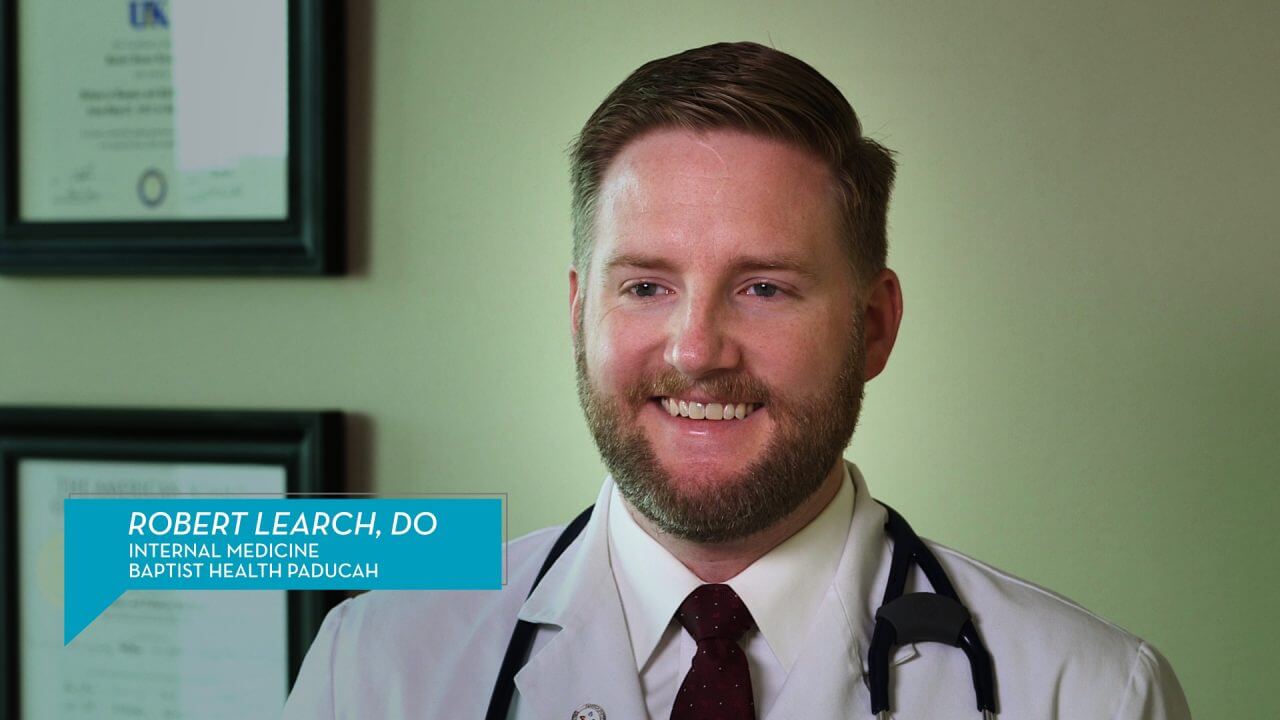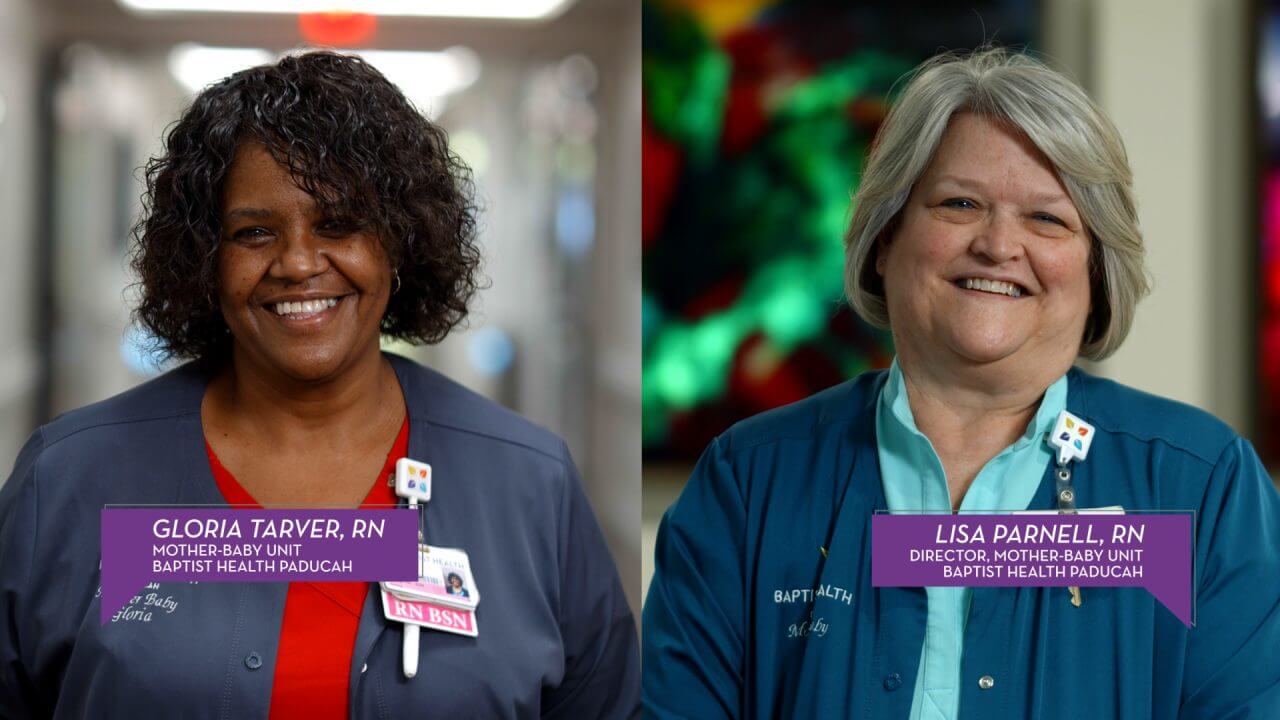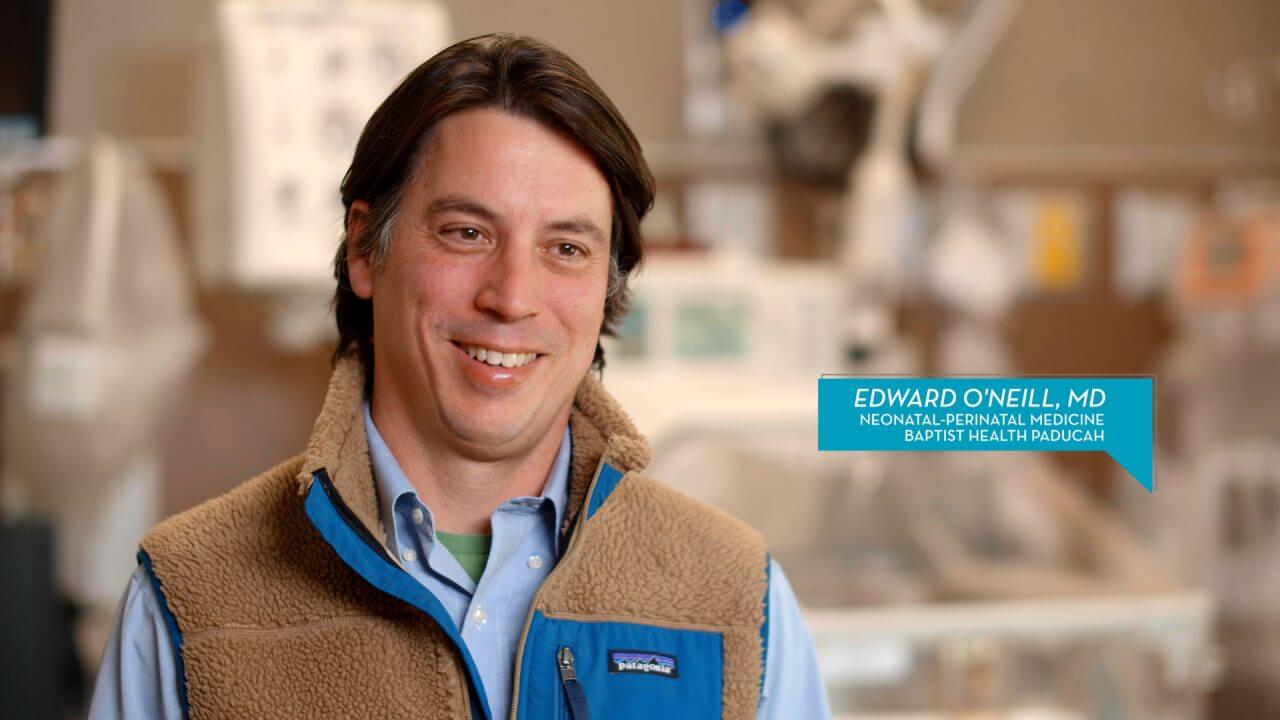Neonatal Pediatric Transport
Baptist Health Paducah: Neonatal Pediatric Transport
Neonatologists Kimberly Shimer, MD, and Edward O’Neill, MD, describe how Baptist Health Paducah can safely transport babies born early to the hospital’s NICU for special care.
Neonatal Pediatric Transport Health Talks Transcript
Kimberly Shimer, MD, Neonatal-Perinatal Medicine
Neonatal babies have some special requirements. They don’t have the ability to hold their temperature, and if they can’t hold their temperature, they’ll have trouble being able to breathe, needing extra oxygen, having low blood sugar.
Edward O’Neill, MD, Neonatal-Perinatal Medicine
We have a NICU here in Paducah, and we’re able to take care of the babies we deliver at Baptist. Certainly, it enhances and promotes, basically, general better outcomes for the infants. When you’re born in other hospitals around this part of the state, in the western part of Kentucky, there are several hospitals that deliver babies that do not have the ability to care for infants who need special care. Up until now, all those babies have had to be referred farther away from home in Nashville, Louisville and Cape Girardeau. Now, we have the ability to pick up a baby that needs our services.
Dr. Shimer
So, with our neonatal transports system, we have a transport isolette that can actually maintain that temperature so that we can have optimal health in the transport process.
Dr. O’Neill
The team is made up of four specialized, trained people. One is a respiratory therapist who can help run the ventilator, because this has a ventilator on it. We also bring two nurses. We also bring in a neonatal nurse practitioner. The nurse practitioner is in communication with the attending physician, which is myself or Dr. Shimer, so we are able to help guide in the care that’s delivered at their referring hospital.
What we’re really doing is doing what we do here in NICU at Baptist. We’re just doing it on the road and so it’s extremely important to try and extend that radius of service to other people in the community.



